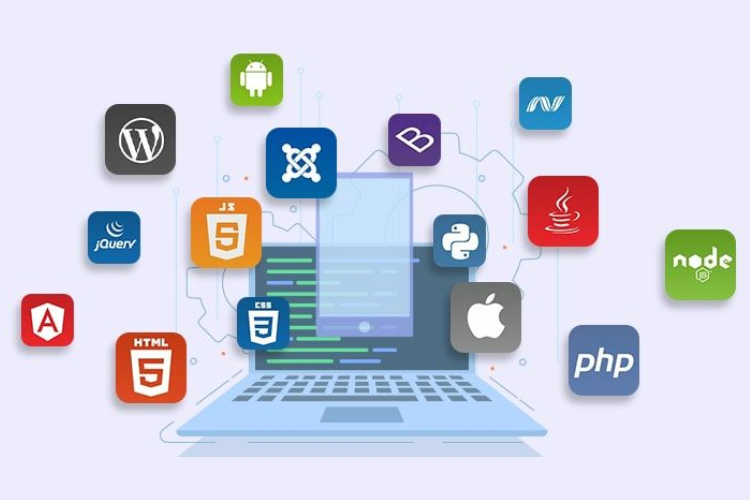
Creating an application is not only a technical task; it is about building a solution that fits users’ needs and will be unique in the marketplace. To those planning on this journey, it is advisable to do it well-prepared. Below are five key areas that you must consider if you want to develop your Mobile App.
Table of Contents
I. Understand your audience and mobile app market
The foundation of any successful app is a thorough understanding of its users. This is not limited to merely defining your audience but going further and analyzing their actions and needs.
Carry out polls, group discussions, and case interviews to obtain the information required. Since the end-users have different needs and expectations, this data assists in adapting the looks and the functions of the mobile app to meet their requirements.
1.1. Segmentation and persona development
Once you have a general understanding of your audience, segment them into more detailed personas. Personas are basically fictional characters that represent your typical users. These should contain demographic information, patterns, and reasons to use the website. These personas will shape your design and features to display real needs and reduce the aspects that do not cater to them.
1.2. Competitive analysis
Identify direct and indirect competitors and analyze their offerings. Consider the features in the mobile app, designs, and users’ experiences or perceptions, as well as any promotions or advertisements they are employing. This requires understanding what competitors are doing right or wrong to enable you to identify areas you need to improve to meet market needs.
1.3. Sustainability and market trends
Stay informed about the latest trends not just in app development but in your specific industry. This may be because of new technology, altered buying patterns as a result of economic changes, or altered laws concerning the use of data.

To ensure the success of your mobile app, partnering with an experienced development team is essential. CodingCops offers expert app development services tailored to your specific needs. Having successful experience in developing qualitative and innovative mobile applications, we suggest ways to avoid mistakes in creating apps and achieve success.
II. Planning functionality and app’s features
Distinguish between core features that are essential for your app’s functionality and supplementary features that could enhance user experience but are not critical.
Focus on developing core features first to ensure a solid and functional foundation, then gradually introduce supplementary features based on user feedback and demand.
- User Journey Mapping
Create detailed user journey maps that outline every step of the user’s interaction with the mobile app, from onboarding to daily usage to troubleshooting. This assists in defining critical touch points that need enhancement of functionality to enhance the user’s experience.
- Scalability and Future-Proofing
Consider how the features you plan to implement will scale as your mobile app grows. This includes not only the technical scalability to handle more users or data but also how easily new features can be added or modified based on future trends and user requests.
III. Go for the right technology stack
Decide whether you’ll develop for iOS, Android, or both. Every platform has its specifications in terms of regulations, technology, and distinctive characteristics of the users. While cross-platform tools like React Native or Flutter offer a compromise between reach and resource utilization, native development can provide a better optimized and user-specific experience.

- Front-end and Back-end Alignment
The choice of technologies for the front-end and back-end should align with your overall business goals, technical requirements, and future scalability. Technologies such as Swift for iOS, Kotlin for Android, and Node.js or Ruby on Rails for the backend are popular choices. Also, it is important to note the compatibility of the software with other systems and databases.
- Security Protocols
Given the sensitive nature of personal data often handled by mobile app, prioritizing security in your technology stack is critical. Implement powerful security measures like SSL/TLS, data encryption, secure API access, and compliance with regulations like GDPR or HIPAA as applicable.
IV. Consider budget and funding
Break down your budget into detailed categories such as research, design, development, testing, marketing, and maintenance. This kind of detailed budget plan assists in monitoring expenditures, which avoids going beyond the set financial blueprint at any given phase of the project.
- Bootstrap vs. External Funding
Consider the pros and cons of bootstrapping versus seeking external funding. Bootstrapping can be slower but allows greater control over the project, while external funding, such as venture capital or angel investment, can accelerate development but often comes with strings attached, such as equity or performance targets.
- ROI and Monetization Strategies
Plan your return on investment (ROI) from the beginning. Determine how you will monetize the app—through ads, in-app purchases, subscriptions, or paid downloads. Each of the strategies has a different effect on the users and the revenues, which should be chosen to meet the users’ expectations and be aligned with the industry trends.
- Cost-Effective Development Practices
Consider cost-effective development practices such as using lean methodologies, prioritizing MVP (Minimum Viable Product) features, and outsourcing to regions with lower development costs without compromising on quality.
V. Plan for app launch and marketing
Before launch, your mobile app should go through rigorous testing to iron out any bugs and improve overall functionality. Applying beta testing is helpful in getting feedback from real users and offers the possibility to make required changes.
- Marketing Strategies
Develop a marketing strategy that includes pre-launch hype and post-launch efforts to attract and retain users. Utilize social media, content marketing, and app store optimization (ASO) to increase visibility.
- Support and Updates
After the launch, actively monitor the performance of your mobile app and gather user feedback. Regular updates not only fix bugs but also offer new features that meet evolving user needs.

- Monetization Strategy
Deciding on how you’ll make money from your app is as important as its development. Will you use ads, in-app purchases, a subscription model, or a one-time purchase price? Therefore, the choice should fit the user’s expectations, as well as correspond to the trends and requirements of the given field.
- Customer Support
Plan for an efficient customer support system to address user issues post-launch. Whether through in-app tools, a dedicated support team, or automated chatbots, ensuring users can get help when needed is vital for maintaining satisfaction and engagement.
Conclusion
While mobile app development is not only about coding, this part also plays a crucial role, as well as the knowledge about the audience, planning the features, choosing the technologies, organizing the finances, and promoting the application. Remember, the success of an app lies not just in its development but in its continuous improvement and adaptation to user needs.












![[SALE OFF] Discount 30% All Premium Extensions On Christmas And New Year 2025 christmas-and-new-year-2025](https://landofcoder.b-cdn.net/wp-content/uploads/2024/12/christmas-and-new-year-2025-1-218x150.png)






